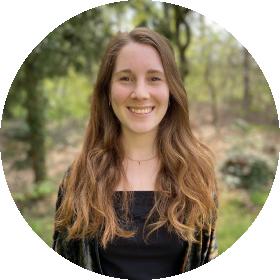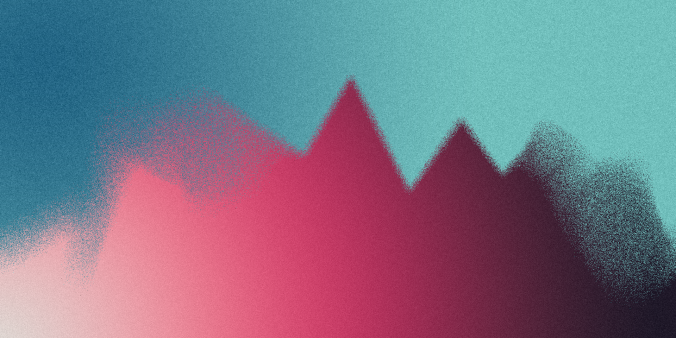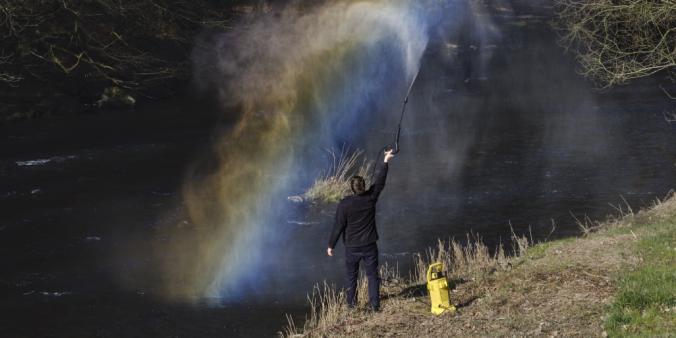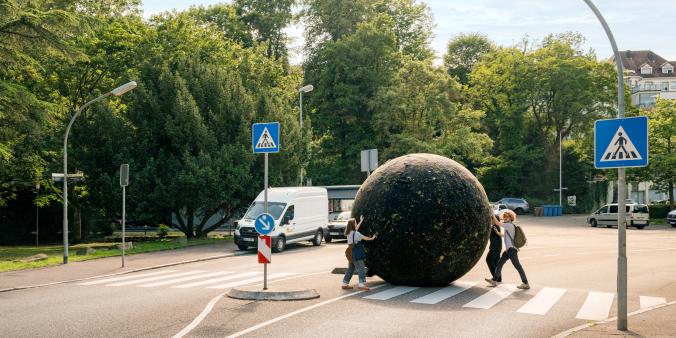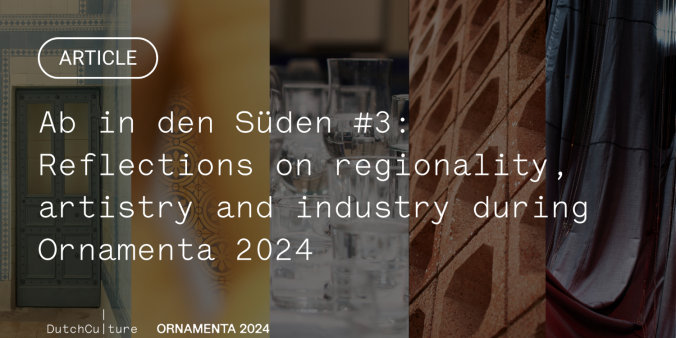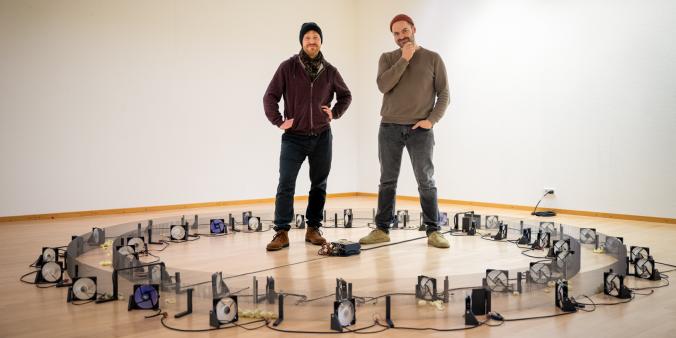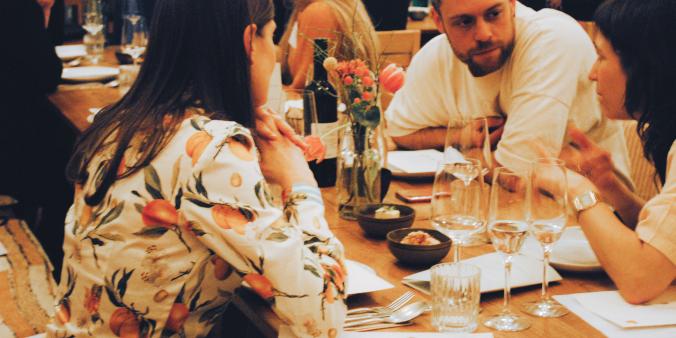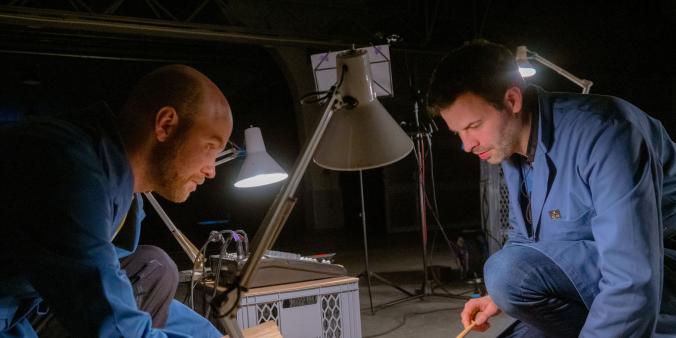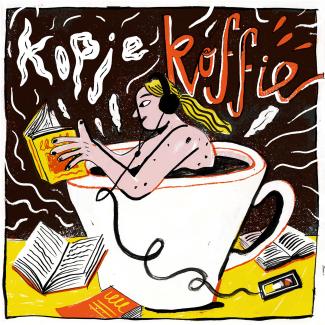
Germany & the Kingdom of the Netherlands
Germany is one of the kingdom's closest bilateral and multilateral partners and the most important trading partner within the EU. Cultural ties are also intensive. In 2024, 705 makers from the Kingdom have crossed the border to work in Germany or with German partners. Germany offers an excellent springboard for a further international career in both German-speaking and English-speaking regions, with its strong links to Central and Eastern European countries.
Places such as Berlin, Munich, Cologne, Leipzig, Frankfurt, Düsseldorf, Hamburg and the Ruhr area are cultural hubs where artists from around the world come together. Berlin, in particular, is seen as a world centre of creativity, with a thriving art scene and numerous museums, presentation institutions, film and literature houses, theatres and concert venues. However, other cities and regions are as interesting as Berlin, with less international competition and oftentimes more opportunities for emerging makers.
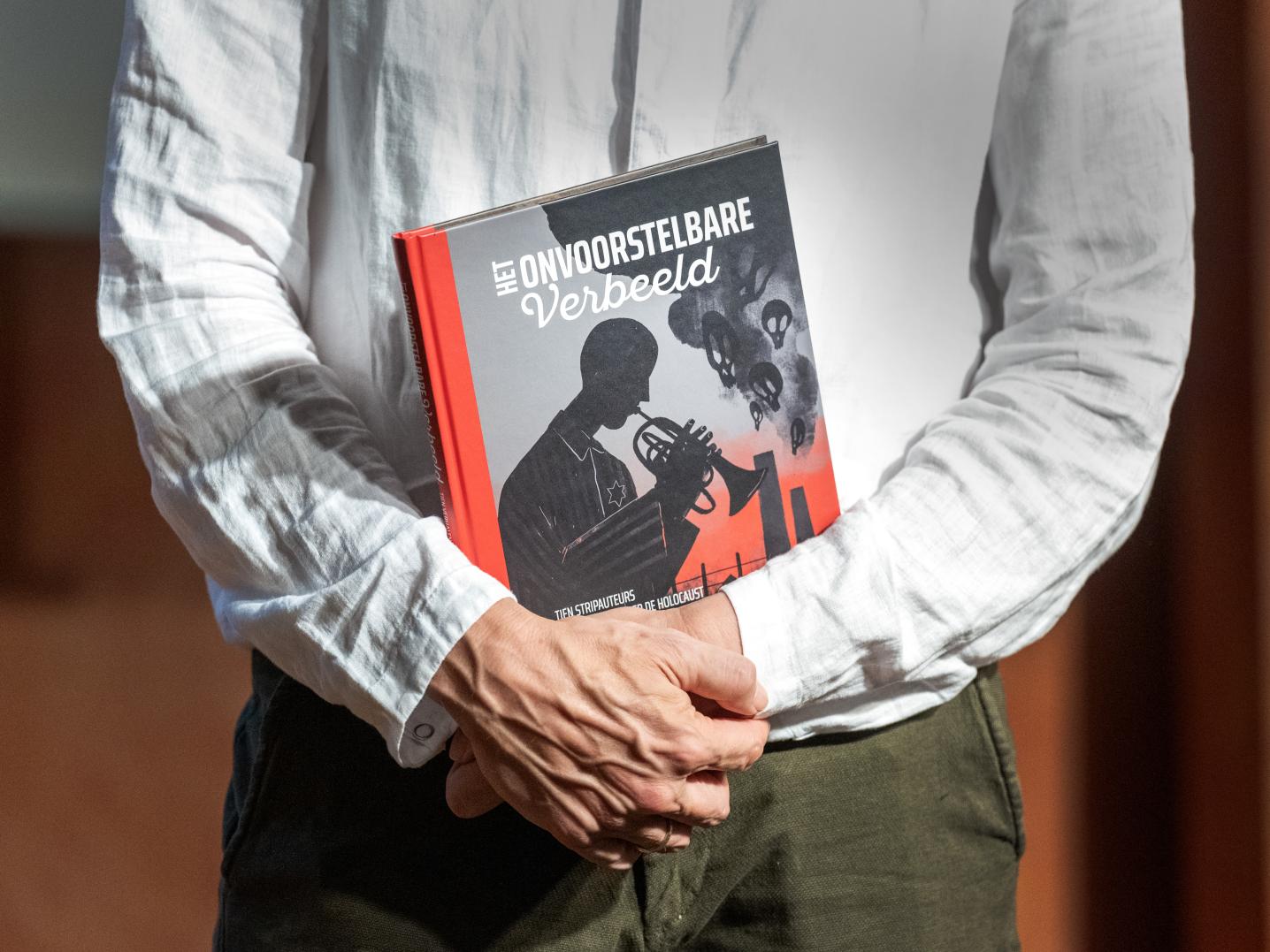
Themes & Opportunities
Social developments as a driving force
In both countries, there is a shared curiosity among artists and policymakers for developments regarding certain themes. Climate change, energy transition, youth culture, diversity, inclusion, the function of cultural institutions and museums as public spaces, dealing with colonial collections and the colonial past, and digitisation are just a few to mention. Nevertheless, both countries face similar struggles such as the political shift to the right and growing polarisation among society. In Germany, art and culture is strongly connected to societal and political debates. The sector speaks out and uses art as a medium to critique conflicts and societal issues. However, partially also due to the political changes, the cultural field recently experienced backlashes, thinking of budget cuts in Berlin, or the feeling of restriction in the freedom of speech connected to the war in Israel/Gaza.
Embracing cultural collaborations in the east of Germany
Since a few years, there has been a special focus on cultural collaborations in the eastern federal states and cities of Germany. For example, The Kingdom of the Netherlands was, together with Flanders, guest of honour of the Leiziger Buchmesse in 2024. 41 authors and illustrators presented themselves to the wider German public through approximately 100 performances, including exhibitions and digital literature installations. Political themes such as climate crisis, gender inequality and racism played a big role in the works, and thus also in discussions, readings and interviews at the fair.
Besides that, Chemnitz, the third largest city in Saxony, is the European Capital of Culture 2025. Under the motto C the Unseen, Chemnitz works towards an open and diverse cultural climate and focuses on activities in socio culture, art, corporate culture, food and nutrition culture, the environment, sustainability, and activities for children, young people and senior citizens. To this end, it brings together regional, national and international partners and hopes for impulses beyond the project year 2025. There will be multiple Dutch cultural makers participating in projects in Chemnitz throughout the year. Cultural professionals are invited to further explore the eastern federal states (Saxony, Thüringen, Brandenburg, Saxony-Anhalt, Mecklenburg-Vorpommern) and encouraged to initiate meaningful collaborations there, building upon the network that has been built up in the last four years.
Cross-border collaborations
North Rhine-Westphalia is the most visited federal state of Germany by Netherlands-based makers. For many people living and working close to the border, it feels natural to expand activities to the other side. The Consulate General of the Kingdom of the Netherlands in Düsseldorf pays special attention to promoting cross-border cooperation with partners operating close to the German Dutch border. They do this by broadening networks, providing targeted impulses for exchanges between makers and mediating between non-congruent government structures. Cross-border subsidy programmes such as EUREGIO are already in place to facilitate the collaboration across and around the border. We advise to make use of existing initiatives like Borderland Residencies, a network of art residencies in the Netherlands and Germany.
Current and upcoming events of importance in Germany
Next to recurrent cultural programmes and festivals (e.g. Berlinale, Ruhrtriennale, Transmediale, Documenta), two remarkable happenings take place in the coming year. First, Frankfurt RheinMain will be World Design Capital in 2026 as a result of their long-standing commitment to design that is rooted in social cohesion, urban transformation and the empowerment of more democratic futures. Secondly, the European Nomadic Biennale Manifesta travels to the Ruhr area in 2026. Through an artistic and social approach, Manifesta works with renowned creative artists and institutions in the Ruhr Metropolis to explore the impact of global logistics, new trade routes and digital economies and evolving working conditions on Europe.
The Embassy of the Kingdom of the Netherlands in Germany
In Germany, the diplomatic network consists of the embassy in Berlin and the consulates general in Munich and Düsseldorf. The embassy supports cultural projects of all disciplines that fulfil the goals of the International Cultural Policy 2025-2028. For instance, this includes projects which are based on long-term partnerships, contribute to exchange and dialogue, and link to socially relevant topics and the Sustainable Development Goals. The embassy welcomes projects linked to reciprocity, diversity, inclusion, equity, social impact, sustainability and with the smallest possible ecological footprint.
Information & Advice
Feel free to contact our advisor for Germany if you have any questions.
